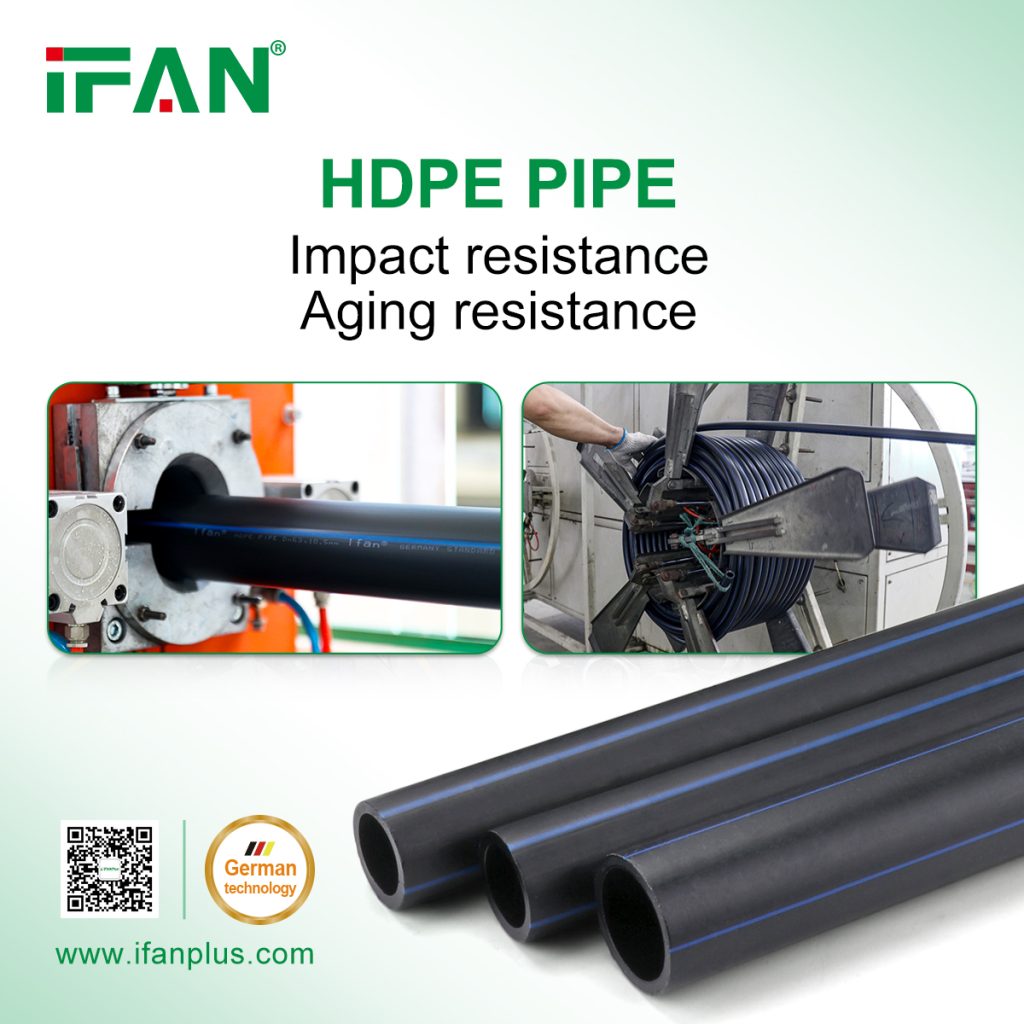Introduction:
Agriculture is vital for the survival of human life. It has been practiced since ancient times, and irrigation has become an essential part of it. In recent years, the use of high-density polyethylene (HDPE) pipes and fittings has become more popular in agricultural irrigation.
What are HDPE pipes and fittings?
They are made from high-density polyethylene materials. They have a high strength-to-density ratio, making them strong, durable, flexible, and lightweight. They are also resistant to corrosion, chemical, and weathering effects, making them suitable for use in a variety of applications.
The benefits of using it in agricultural irrigation:
1.Reduced water loss:
During transportation, water loss occurs through leaks, seepage, and evaporation. it have low leakage rates, reducing water loss.
2.Long-lasting:
It have a life span of up to 50 years, making them a cost-effective investment.
3.Resistant to chemicals:
Chemicals present in irrigation water can corrode pipes and fittings, leading to water contamination. HDPE pipes are resistant to various chemicals, making them ideal for irrigation.
4.Easy installation:
HDPE pipes and fittings are easy to install, saving on labor costs.
5.Cost-effectiveness:
The cost-effectiveness of it is predicted to increase, thanks to their long-lasting nature and low maintenance costs.
Conclusion:
They are the future of agricultural irrigation. They offer a range of benefits such as reduced water loss, durability, resistance to chemicals, and easy installation. With technological advancements and sustainability in mind, the use of it is predicted to increase, making them an essential part of agricultural irrigation.
View more:https://www.ifanfittings.com/


